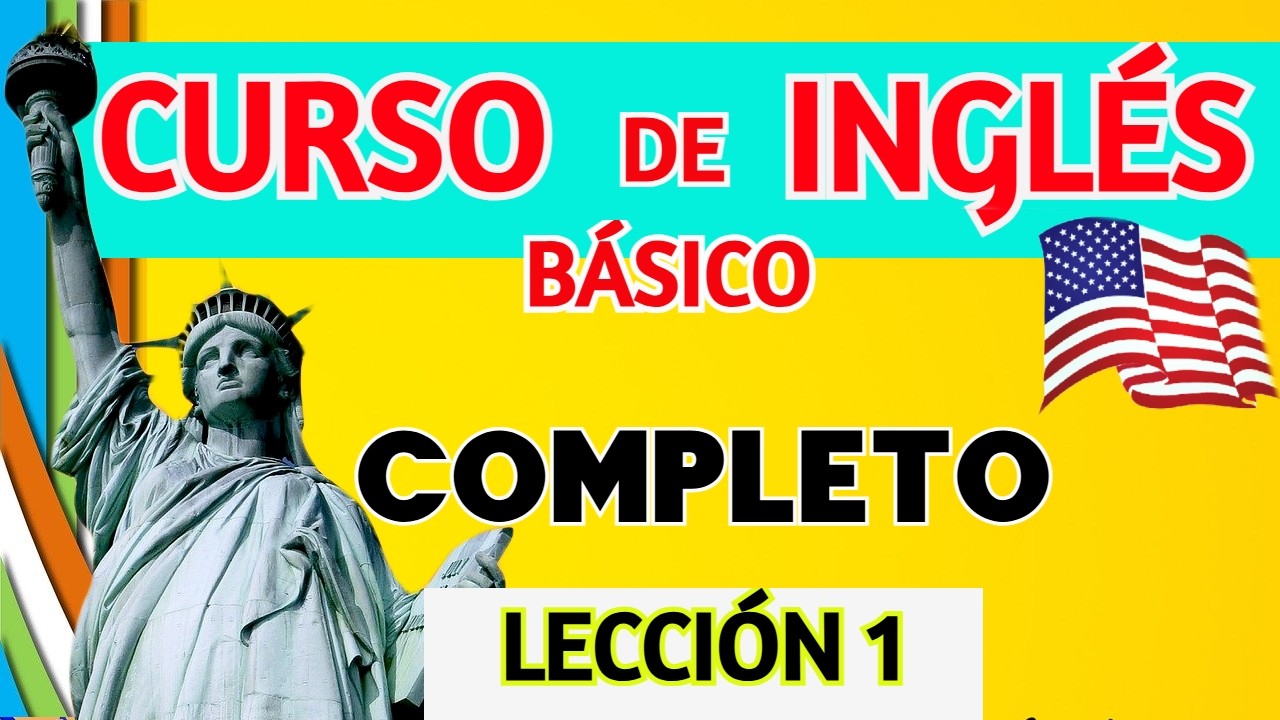Greetings, Responses & Farewells in English | Formal & Informal
Summary
TLDREl vídeo de 'The English Stop Channel' presenta un tutorial sobre saludos, respuestas y despedidas en inglés. Se explica cómo saludar informalmente con frases como 'Hi, how are you?' y sus respuestas, así como alternativas como 'How's the life?' y 'What's up?'. También se discute cómo despedirse de manera casual y formal, con expresiones como 'Bye', 'See you later' y formales como 'It has been a pleasure'. Además, se aborda la importancia de la cortesía y la reciprocidad en las interacciones.
Takeaways
- 😀 En situaciones informales, saludar a alguien comúnmente se hace con 'Hi, how are you?'.
- 🗣️ Las respuestas comunes a 'how are you?' incluyen 'I'm fine', 'I'm great', 'I'm very well' y 'Fantastic!'.
- 🇬🇧 En el Reino Unido, es común responder 'Not too bad' a la pregunta de saludo.
- 😐 'So-so' se utiliza para expresar una respuesta neutral, indicando que el estado de ánimo es neutro.
- 😔 Si no te sientes bien, puedes responder con 'Been better', 'Not so great' o 'Terrible'.
- 🔁 Es cortés devolver la pregunta 'how are you?' al final de tu respuesta.
- 🌟 Otras formas de saludar en situaciones casuales son 'How is it going?', 'How's the life?' y 'How are you doing?'.
- 🕵️♂️ Las preguntas que comienzan con 'what' buscan noticias o información sobre ti, como 'What's up?' o 'What's new?'.
- 🇬🇧 Una forma muy británica de saludar en situaciones informales es preguntar 'Alright?' o 'Are you alright?'.
- 👋 Al despedirse en situaciones informales, se pueden usar expresiones como 'Bye', 'See you later' o 'Take care'.
Q & A
¿Cuál es la forma más popular de saludar en una situación informal en inglés?
-'Hi, how are you?' es una de las formas más populares de saludar en una situación informal en inglés.
¿Qué respuestas comunes se pueden dar a la pregunta 'how are you?' en una conversación informal?
-Algunas respuestas comunes incluyen 'I'm fine', 'I'm great', 'I'm very well', 'Fantastic', 'Not too bad' y 'so-so'.
¿Cómo se puede expresar que no se siente bien en respuesta a 'how are you?' en inglés?
-Si no se siente bien, se puede decir 'Been better', 'Not so great' o 'Terrible'.
¿Es necesario devolver la pregunta 'how are you?' cuando alguien te la hace?
-Sí, es cortés devolver la pregunta, por ejemplo, diciendo 'I'm fine, thanks and you?'.
¿Qué otras preguntas de saludo se pueden utilizar en una situación casual en inglés?
-Algunas preguntas adicionales incluyen 'How is it going?', 'How's the life?', 'How are you doing?' y 'How have you been?'.
¿Qué significa la pregunta 'How have you been?' y cómo debería responderse?
-Esta pregunta busca noticias sobre tu vida reciente y no es apropiado responder simplemente con 'good' o 'great'. Debes dar más detalles, como 'Pretty good, I've been working non-stop lately.'
¿Cuáles son algunas respuestas simples a preguntas que comienzan con 'what' en una conversación informal?
-Puedes responder con 'Nothing', 'Not much', 'Nothing much', o dar más detalles como 'I've just finished work.' o 'I'm going on holiday next week.'.
¿Qué significa la expresión 'What have you been up to today?' y cómo se responde?
-Esta pregunta significa que la persona no te ha visto en un tiempo y quiere saber qué has estado haciendo. Puedes responder con actividades que te han ocupado, como 'I was at work until two o'clock and then I went to the supermarket to pick up some vegetables.'
¿Cómo se saluda de manera informal en una situación muy casual en el Reino Unido?
-Una forma muy británica de saludar en una situación casual es preguntar 'Alright?' o 'Are you alright?'.
¿Cómo se dice adiós en una conversación informal en inglés?
-Se puede decir 'Bye', 'Bye-bye', 'See you later', 'See you soon', 'See you around', o 'Take care'.
¿Cómo deberían ser los saludos en una situación formal en inglés?
-En situaciones formales, es mejor usar saludos tradicionales como 'good morning', 'good afternoon', y 'good evening', y responder con la misma formalidad, por ejemplo, 'Hello Dilyana, how are you?'.
¿Qué expresiones se pueden usar para despedirse de manera formal en inglés?
-En una despedida formal, se pueden usar expresiones como 'It has been a pleasure for me.', 'Thank you for your time.', 'Sorry, I must go now.', 'Have a nice day.', 'Have a nice night.' o 'Have a nice weekend.'.
Outlines

This section is available to paid users only. Please upgrade to access this part.
Upgrade NowMindmap

This section is available to paid users only. Please upgrade to access this part.
Upgrade NowKeywords

This section is available to paid users only. Please upgrade to access this part.
Upgrade NowHighlights

This section is available to paid users only. Please upgrade to access this part.
Upgrade NowTranscripts

This section is available to paid users only. Please upgrade to access this part.
Upgrade NowBrowse More Related Video

20 Maneras de Saludar y 10 Maneras de Despedirse en Inglés

Lección 5 - Saludos y despedidas en inglés - Greetings and Farewells - INGLÉS DESDE CERO 🤗🚀

CURSO DE INGLÉS BÁSICO PARA PRINCIPIANTES CLASE 1

Inglés Básico: who, what, where, when, why, how

SALUDOS Y DESPEDIDAS EN INGLES / LOS MAS USADOS EN ESTADOS UNIDOS

Entrevista estructurada
5.0 / 5 (0 votes)
